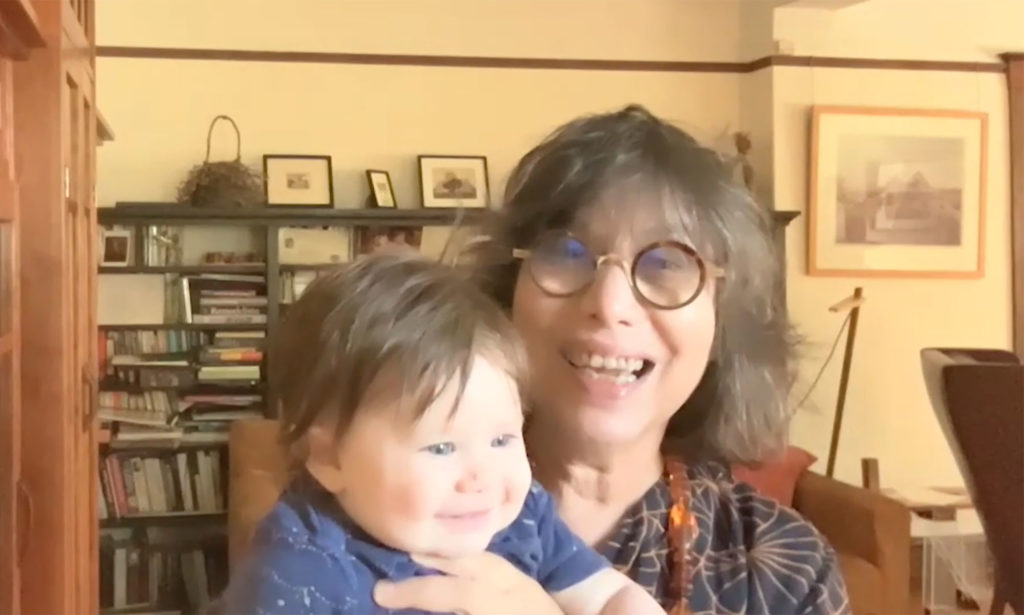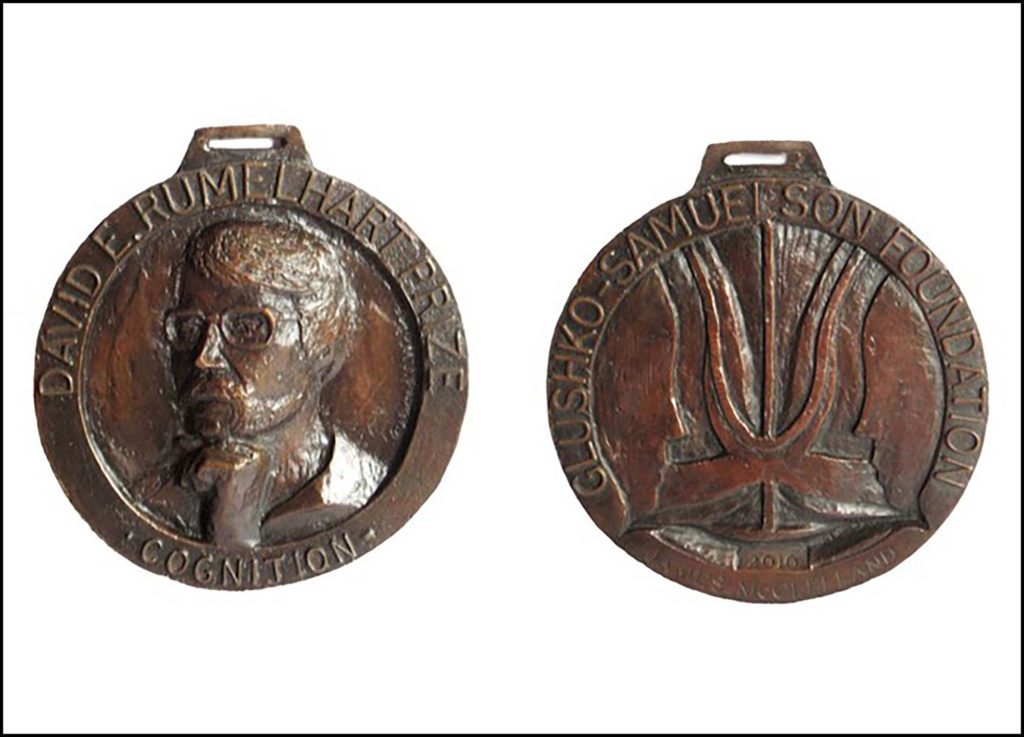Alison Gopnik Receives 2024 Rumelhart Prize in Cognitive Science

Above: Gopnik’s acceptance video for the award, recorded with the assistance of her grandchild. See the complete video.
APS Immediate Past-President Alison Gopnik, a psychology professor at the University of California, Berkeley, has received the 2024 David E. Rumelhart Prize in Cognitive Science from the Cognitive Science Society.
Announced July 27 at the society’s annual conference in Sydney, Australia, the award is named after David Rumelhart, an APS charter member known for his many contributions to the formal analysis of human cognition. It comes with a $100,000 cash prize and is awarded annually to an individual or collaborative team making a significant contemporary contribution to the theoretical foundations of human cognition.

“Alison Gopnik has made enormous impact across the cognitive sciences,” the Cognitive Science Society said on its website. “Beyond her notable contributions within psychology, she has published within philosophy and linguistics, her work has had an impact in education, she is gaining recognition in animal behavior and anthropology, and she has informed artificial intelligence. Her contributions are not only deep but broad, showcasing how the disciplines of cognitive science can work together to give us a more complete picture of intelligence and the mind.”
That broad recognition is particularly meaningful to Gopnik, she told APS in an email, because the award’s history “is an important reminder that many of the central ideas of contemporary AI originally came from work in scientific psychology.” She noted that Rumelhart himself developed the neural network techniques that are core to modern machine learning, and that past winners of the prize, including Geoffrey Hinton and Judea Pearl, also won the A.M. Turing Award in computer science for their discoveries involving artificial intelligence.
“We often divide up psychological and cognitive sciences based on the kind of subjects we study,” she explained. “On that basis, I’m a psychologist who studies children—and proud of it. But the reason I study children is to try to make very general discoveries about how the mind works—in fact, how any mind, human or artificial —could work.”
Moreover, Gopnik added, “The motivation for my work has always been to pull together ideas from different disciplines. I started in philosophy, had my first job in a linguistics department, and am currently part of The Berkeley Artificial Intelligence Research Lab. So the interdisciplinary nature of the award feels very much like a recognition of what is most important to me.”
Gopnik, whose term as APS President ended May 31, is the second APS leader to receive the Rumelhart Prize in recent years, following 2021 recipient Susan Goldin-Meadow.
Gopnik reflected on the significance of the award to psychological science and the work of APS more broadly. In addition to Rumelhart’s involvement in APS’s founding, “There is an interesting list of joint winners of the APS William James Fellow Award and the Rumelhart Prize, including Susan Carey, Susan Goldin-Meadow, and Lila Gleitman,” she said. “The study of cognition in scientific psychology is one of the core domains in cognitive science. It is also striking that, like me, past joint James and Rumelhart winners have used studies of children to understand basic theoretical foundations of cognitive science.”
Read all of Alison Gopnik’s Observer columns as APS President. Learn more about the David E. Rumelhart Prize.





Comments
Stephen F. Austin State University
Retired - No Journals (1 Year)
Member Since 04/09/2014
Richly deserved, Alison. Congratulations!
Central European University
Retired - 5 Years
Member Since 06/09/2011
Congratulations Alison. Your distinction is much merited. But the prize is also very important since a developmental researcher received it.
Ahead with the wise babies!
Csaba
APS regularly opens certain online articles for discussion on our website. Effective February 2021, you must be a logged-in APS member to post comments. By posting a comment, you agree to our Community Guidelines and the display of your profile information, including your name and affiliation. Any opinions, findings, conclusions, or recommendations present in article comments are those of the writers and do not necessarily reflect the views of APS or the article’s author. For more information, please see our Community Guidelines.
Please login with your APS account to comment.